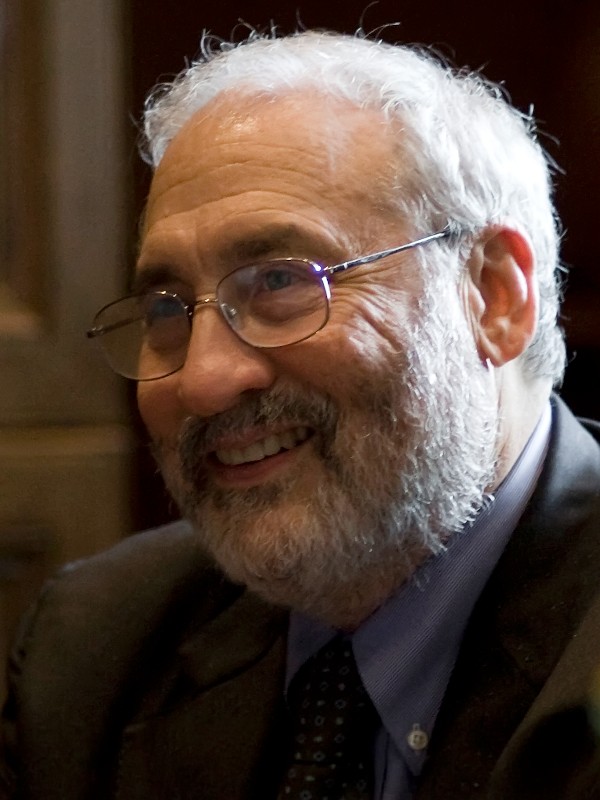The question is whether some of the fears of last year will be realized this year. There is strong reason to worry.

"Joseph Eugene Stiglitz", Foreign Member of the Royal Society/ForMemRS, British Academy/FBA is an American economist and a professor at Columbia University. He is a recipient of the Nobel Memorial Prize in Economic Sciences (2001) and the John Bates Clark Medal (1979). He is a former senior vice president and World Bank Chief Economist/chief economist of the World Bank and is a former member and chairman of the (US president's) Council of Economic Advisers. He is known for his critical view of the management of globalization, Free market/free-market economists (whom he calls "Market fundamentalism/free market fundamentalists"), and some international institutions like the International Monetary Fund and the World Bank.
More Joseph Stiglitz on Wikipedia.So the theory asks, how can shareholders ascertain what the firm's real prospects are when they have less information, ... It's a pervasive aspect of modern economies.
Asia has become the source of finance, the source of savings. It now has the human capital to manage that well. Why doesn't it take the advantage of that opportunity to try and create financial markets that work better for the people of Asia.
Macroeconomic policy can never be devoid of politics: it involves fundamental trade-offs and affects different groups differently.
We did not have to fight this war, and we did not have to go to war when we did. We could have waited until we had more safe body armor and we chose not to wait.
The question is whether it'll be a stable country, will it be a country in which a diversity of views, open transparency, women's rights are recognized. The likelihood of that remains very low.
Elderly people remember when they could go to the movie for a nickel or a quarter.
An example might be, when the owner of the firm knows more than the shareholders.
Copyright © 2024 Electric Goat Media. All Rights Reserved.